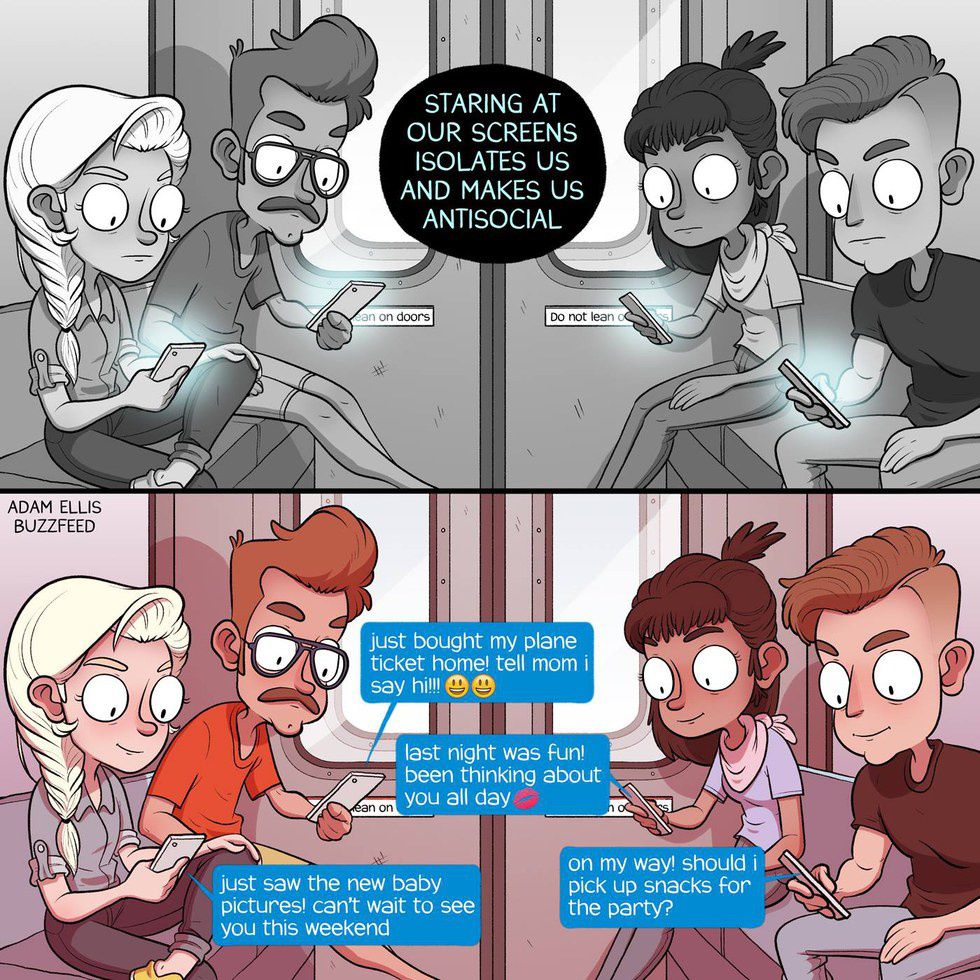Think different. This is the popular 1997 slogan of the world's largest company, Apple. Think different.
Since the development of mobile cellular devices, users have adopted the new technology as a way of life. This is much to the criticism of skeptic elders, who did without, and thus believe we can/should do the same. Countless studies have been conducted to understand how cellular use and text conversation affect the brain, as well as societal connection. The bottom line: Texting is a big deal in modern American society. It is also highly misunderstood, as demonstrated by this photo I found on Facebook:
I can't tell you how many times some 30+ person has been guilty of making this assumption as I respond to a text message or Facebook comment. Let's get one thing straight: a millennial with a lit up screen does not equate to laziness nor complacency in his relationship with others.
With my mobile device, I can set a coffee date to encourage my friend about a new job interview, remind my mother that our church service is posted online, refill a prescription, buy my finance's birthday present and review a prayer list for my small group, all in the time it's taken you to complain about me being on my phone.
Yes, there is a time to put the phone away. When you are at dinner with friends or family, don't waste precious time viewing Snap Chat stories. In professional settings, don't be caught checking the time on your cell; you will appear uninterested and unconcerned.
Yes, you are isolating yourself if you can't run into an acquaintance without acknowledging them before awkwardly busying yourself with the text message that hasn't just popped up.
But the most misunderstood fact about cell phones is that they serve our needs for connection and knowledge in ways nothing else can. In fact, the belief that technology is isolating society members from one another is serving a detriment to the very people who hold it together. Through use of our cell phones, we can:
1) Serve a greater number of people by making time for them throughout our day.
2) Find quick solutions to immediate problems.
3) Lose ourselves in a book, a Comedy Central video clip, or make a friend laugh.
4) Raise money for any given cause.
5) Catch up with high school friends.
6) Maintain long distance relationships.
7) Save someone from committing suicide.
Countless stories of hope can be found on the internet-- streams of people reporting they received a text or call at the moment before they tried to take their life. Songs from online stations have given hope to the hopeless in what they had planned on being their final moments.
Studies have proven that laughter is good medicine and a necessary part of our communications. If a tacky dog-faced filter on Snapchat is the key to making somebody smile, today, you take that shameless photo. If the best way you can give or receive validation in your friendships is to send a quick message (while it's on the brain), you do that. Take the time to make things happen, today.



















